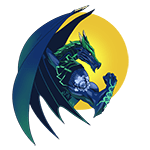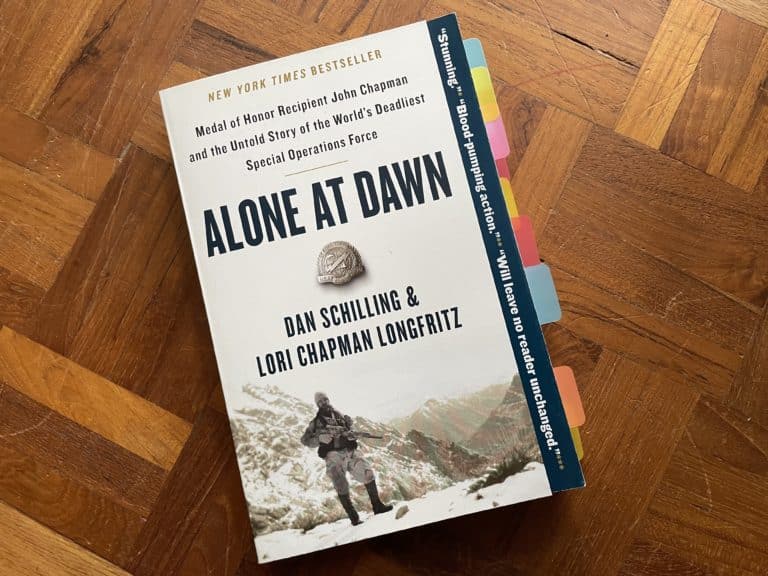This post contains affiliate links. This means that if you make a purchase through one of these links I will get a small commission at no additional cost to you. I only recommend products and services to readers that I believe are valuable.
E-books or Hardcopies- Why Reading is Essential
Some of the first books I can remember having and reading when I was very young was a set of the Little Golden books. The Poky Little Puppy was a favorite. I had my mother read it to me over and over. It was simple but comforting. Eventually when I learned to read, I read it myself over and over.
Around the age of 8 or 10 I can remember owning another set of children’s books, this time a set of non-fiction books with cartoon style drawings- The Survival Series for Kids. Each book addressed some sort of practical problem. I never wanted to clean my room. One volume of this set presented a method for cleaning one’s bedroom. It started with making the bed. Then you start at the doorway and go around one side of the room and every time you came to an object that was out of place you were to place it on the bed.
This continued until you made it all the way back around to the doorway. Next, you took one item at a time and discarded it or found a place for it. Eventually you were left with a nicely made bed and a completely organized room with everything in its place. “Huh”, I thought to myself with a shrug. That actually worked. And it came from a book. Noted.
When I was in high school I started reading self-improvement books and biographies. This seems to be a common trend amongst idealistic teenagers looking to find themselves. There was one on Arnold Schwarzenegger that I found inspiring. The one on Miles Davis, however, completely changed my life. Both of these came from the library. If I hadn’t stumbled upon the books there, I wouldn’t have even known they existed. This was just before the internet started becoming commonplace in people’s lives.
As I continued into adulthood, books and reading came in and out of my life. Sometimes I read voraciously. Large, sprawling fantasy worlds occupied my thoughts. New activities and subjects I’d never previously shown an interest in took up residence in my mind.
At other times I was “too busy” and couldn’t be bothered. I diverted my attention to other pursuits, sometimes for months at a time. As I look back it seems that although I could appreciate a book for what it could do for me in the moment, the vast, global opportunities of reading still escaped me. I didn’t get it. I got distracted by shiny things.
There are so many reasons now why I love reading and why I feel its important to maintain a regular reading habit. The below are just a few of these, I guess what I deem the most essential reasons to include reading in your life. These days I’m more likely to be distracted from books by other books.
Although I rarely spend an entire day just reading, I would happily do so if I didn’t have other things I want to accomplish. Once upon a time, I had to force myself to read, like a kid who doesn’t want to take his medicine. Now, it’s one of my favorite things to do. Sometimes a reward at the end of the day. And nearly always the first thing I do every morning.
Books Illustrate Possibility
This one’s a bit of a double-edged sword. I’m thinking more of non-fiction books here- biographies and memoirs, history books, popular science books, etc.
Books tell you what other people are up to. Or what they were up to back in the day. Reading about someone’s practice habits, childhood, early career, routines, likes, dislikes helps take the guesswork out of common sentiments like “Boy, he’s talented!” or “I’m sure she practiced a bunch”.
Did you know that jazz saxophone icon John Coltrane practiced obsessively, so much so that sometimes his wife would find that he’d fallen asleep with the horn still in his mouth? That’s what “a bunch” means in case you were wondering. If you’re thinking about making a career out of one of your interests and you want to know how, it helps to know what the standard is.
Then again, Vincent Van Gough didn’t start painting until the age of 27 and had no formal training. Tara Westover, David Goggins, and Richard Wright all came from shitty, broken homes and still managed to overcome their circumstances to make their unique voices heard.
Books shed light on why people are successful, happy, or driven. Sometimes they illustrate why some are misguided, argumentative, or selfish. These examples can be good lessons too. Books can show you that greatness in a field is possible. They can show you how to get there.
What’s someone capable of (maybe you?) when they escape their small hometown or small minded social circle?
The Authors’ Lives
Many times the authors’ lives are just as interesting as their characters’. This is a kind of counterpart to the first point. Quick question- what was the first science fiction book? Many would agree that it’s Mary Shelley’s Frankenstein. It’s a unique and captivating thought, the idea of using science to bring life to an inanimate object, all the more so for the time period in which it was written (1818).
The novel has withstood the test of time and continues to influence authors, film and tv, not to mention pop culture at large. But what’s really impressive, mind blowing in fact, is that you have to take into account that Mary Shelley was 21 years old when she wrote it. That’s extremely young to be starting entire genres of literary fiction now isn’t it? And this in a time when women were essentially still seen as the property of their husbands. Mary Shelley’s rebellious life only gets more interesting the more you look into it, and knowing the details of it gives the reader a greater context and appreciation for her works. But she’s not the only one.
Haruki Murakami, one of the most celebrated authors of our time didn’t start writing until the age of 29. After running a failed jazz kissa, Murakami was attending a baseball game when it suddenly dawned on him that he could become a writer, despite not ever having written anything.
The book Alone at Dawn, a telling of Medal of Honor recipient John Chapman’s life as well as a breakdown of the botched Operation Anaconda at the beginning of the war in Afghanistan, is a thorough and harrowing tale of Air Force CCT (Combat Control) operators. The author’s name seemed familiar as I was reading and as I found out that he was a former AF CCT himself, the expertise with which he explains the material all made sense. It wasn’t until I was finishing the book that I was able to place the author’s name, Dan Schilling. I had previously read another harrowing tale of a military op gone wrong, an operation the author had taken part in. The book? Black Hawk Down by Mark Bowden. How’s that for coming full circle?
Read Deeply or Widely
One of the cool things about reading is that you can pursue it as little or as far as you want. You could read 10 books on 10 different science topics and come away a much more well versed reader with a broader base of knowledge on what’s going on in science today. Or you could do a deep dive on just one of those topics and come away a virtual expert on that singular subject.
Curious in general about the world? Read WIDELY. Want to be an expert on crafting horrific suspense novels? Read everything Stephen King’s ever written (that’ll take you a while). One of the great things about reading is the variety of stories and knowledge that are available to us now. It can be overwhelming if you stop to think about it. Why not choose to be inspired by it?
Reading Makes You Smarter
Reading books makes you feel just oh so smart, now doesn’t it? Choose the right books though and reading can make you actually smarter. Reading can increase you vocabulary, which in turn makes it easier to read more complex books and follow more complex and nuanced discussion. A few of my favorite more recent words- vulpine, provincial, spurious, and wan.
Reading can increase you empathy, particularly when you read fiction. One of the cancers currently eating our society is the intensity of division we seem to experience on any number of topics. We’re never going to agree on everything. That should be a good thing, as we benefit from different perspectives.
An antidote to the “us vs. them” mentality is to interact with differing opinions contained within books. At the very least, you’ll understand the other side better.
Fiction books give you an opportunity to hear ideas and opinions different from your own without there being anything at stake. One should be able to read the opinion of a fictional character that one might disagree with without completely losing their shit over it. Appreciate ideas objectively. You might be surprised at what resonates with you.
Going back to the idea of context, reading is again particularly well suited to this. People in books, real or fictional, have motives, desires, ambitions, people they care about, conflicting emotions, etc. What a skilled author can do with this is craft a narrative that gets across how those people feel and think in situations and how they come to the decisions that they do.
This can be very enlightening for the reader. Suddenly you begin to look at people differently and perhaps consider not only how others act but why they respond a certain way in situations, view things a certain way, and behave in general the way that they do.
Not to state the obvious, but (I’ll state the obvious here…) the above mentioned positives are all on top of the practical information and knowledge you can get from books. Almost anything at all in the world has had a good book written about it. And it’s all there for the taking.
Reading Introduces You to New Concepts
If a book can make you aware of a character’s opinion, a book can certainly introduce you to a new concept altogether. Have you ever heard of –
Ultralearning
Command and Control
Purposeful Practice
Brain Plasticity
Growth Hacking
Meaning Making
CRISPR
When you converse with others it’s nice to be able to follow the conversation. When your kid asks you a question it’s nice to be able to give a cogent answer instead of faking one (trust me, I’ve been guilty of this more than I care to admit). Even only having a basic understanding of broad concepts in various fields gives you the ability to interact with aspects of the world more readily and more often. And that makes living more fulfilling and more enjoyable.
Reading opens up the world to you. Whether you read on an e-reader or with hard copy books (my preference), just READ. Every day. Even if only a little bit each day. Choose books on things you’re interested in and inspired to learn about. You’ll see yourself change and you’ll experience the world and others in new and fascinating ways.
Where to Buy
I’ve recently partnered with Bookshop.org, a company who has a really fantastic mission to help independent bookstores. They give over 80% of their profit margins to independent bookstores, and if you purchase through them you can even select which local bookstore you’d like to support! I was pretty blown away to find an online retailer such as this. You can read more about their mission here.
And if you’re keen to buy some books, just hit the button above to visit Bookshop now. They have a great selection of science, history, fiction, sci-fi, and classics to choose from! 👌







